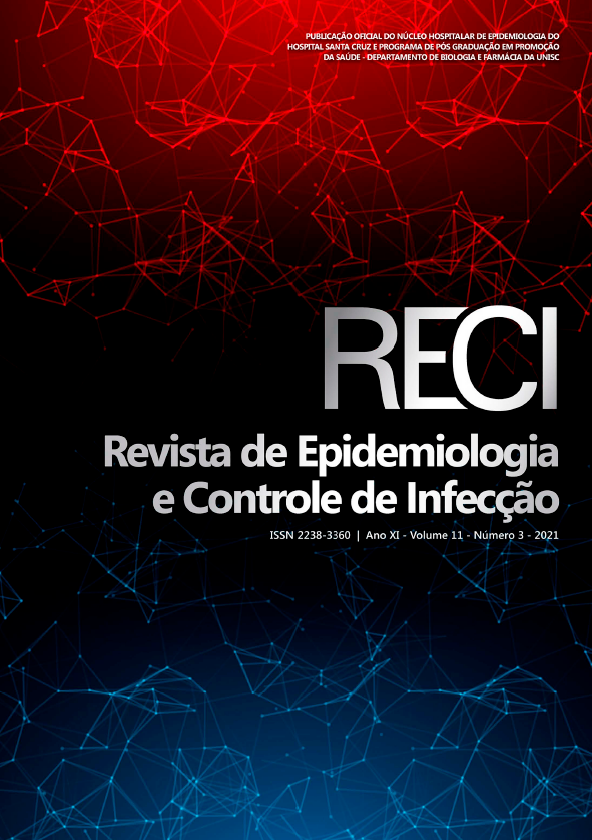Bacterial profile of surfaces and equipment of the Orthopedic Clinic of a University Hospital
DOI:
https://doi.org/10.17058/reci.v11i2.15417Palabras clave:
Bactéria. Infecções Bacterianas. Infecção Hospitalar. Contaminação de Equipamentos. Segurança do Paciente.Resumen
Healthcare-Associated Infections (HAIs) are an important public health problem that impacts negatively on hospital costs and patient prognosis. Given the importance of the hospital environment in the development of HAIs, the objective was to evaluate the bacterial profile on surfaces and equipment of the Orthopedic Clinic of the Hospital Universitário do Vale do São Francisco. Methods: This is a cross-sectional, descriptive, quantitative study. Samples were collected in 13 wards, each ward with four beds and one was chosen at random, where surfaces and equipment were sampled using swabs soaked in saline and a 1cm2 filter paper mold to standardize the samples. After passing the swab, they were stored in a tube containing 5mL of BHI (Brain Heart Infusion) liquid medium. Then, samples were transported to the Clinical Analysis Laboratory/Microbiology Sector where the microbiological analyzes were performed. Results: In total, 257 bacteria were observed, of which 5.11% were possible causes of hospital infection and 79% coagulase-negative Staphylococcus. Antibiograms of these were performed and different resistance profiles were found. The bathroom doorknob, a high-touch surface, presented the greatest variety of species among the evaluated surfaces. Conclusion: Surfaces and equipment of the evaluated clinic present possible bacteria that cause hospital infection with different profiles of antimicrobial resistance, contributing to possible cross infectionsDescargas
##submission.downloads##
Publicado
Cómo citar
Número
Sección
Licencia
Derechos de autor 2021 Tatiana Carla Carvalho Amorim Guisande, Sued Sheila Sarmento, CARINE ROSA NAUE, Mirthes Maria Rodrigues Santana, Bruna Manuella Souza Silva, Carine Freitas e Silva

Esta obra está bajo una licencia internacional Creative Commons Atribución 4.0.
The author must state that the paper is original (has not been published previously), not infringing any copyright or other ownership right involving third parties. Once the paper is submitted, the Journal reserves the right to make normative changes, such as spelling and grammar, in order to maintain the language standard, but respecting the author’s style. The published papers become ownership of RECI, considering that all the opinions expressed by the authors are their responsibility. Because we are an open access journal, we allow free use of articles in educational and scientific applications provided the source is cited under the Creative Commons CC-BY license.


